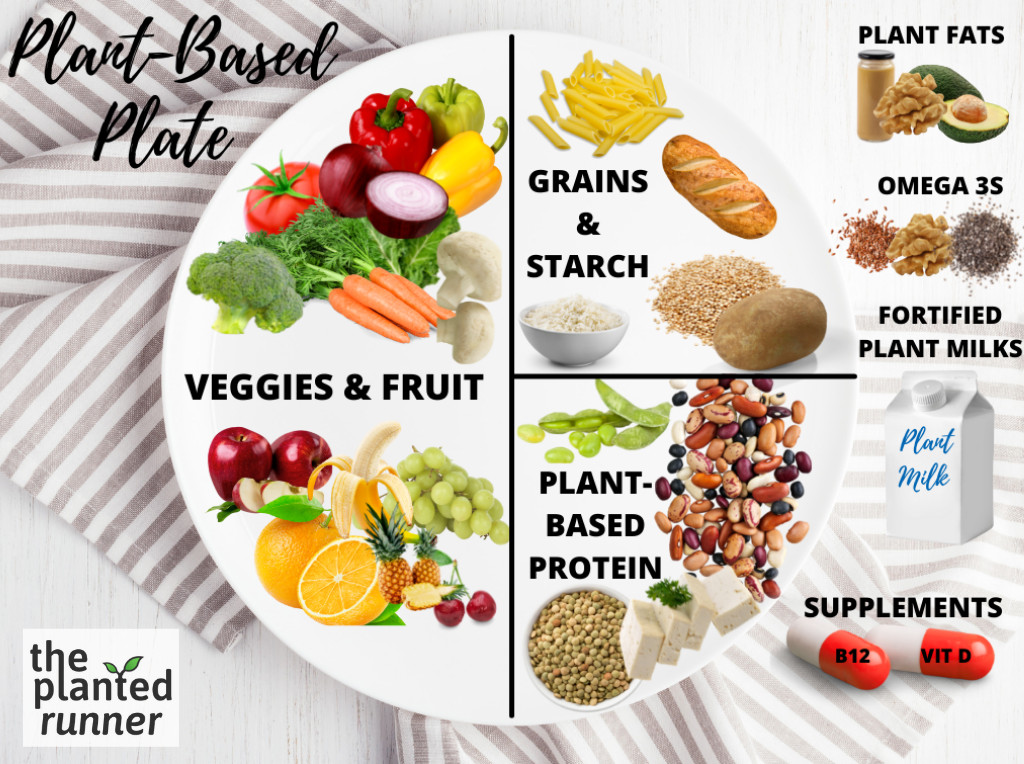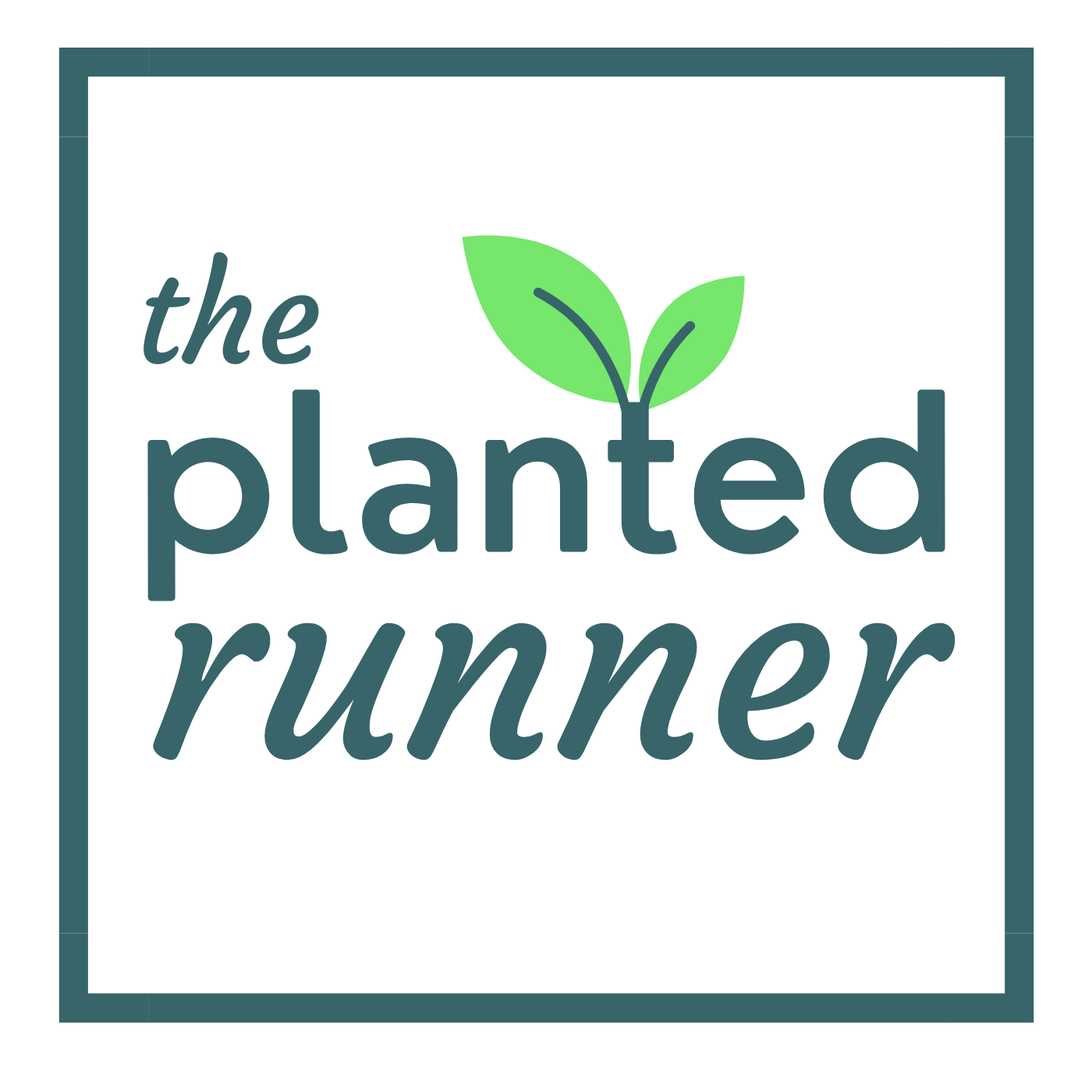Build a better plant based plate with these tips!
Once you’ve decided to make the transition to a plant-based lifestyle, it can be really exciting at first. You head to the grocery store pumped about this new journey into optimum health and then you realize…you have no idea what you are doing.
I’ve found that many people struggle initially because they simply cut out meat and dairy without really thinking about what to replace them with. Bread and pasta are easy fall-backs and can quickly lead to an unbalanced diet, not to mention it gets old pretty quick.
(Yes, I swear, you CAN eat too much bread!)
Some people find themselves hungry and unsatisfied. That’s because in their quest for supreme health, they eat nothing but salad for a couple days. They are naturally super hungry, cranky, and quickly lose motivation.
It becomes very easy to focus on all the things you “can’t” eat, get frustrated, and then end up right back where you started, declaring that plant-based just isn’t working for you.
There is a better way!
The Plant-Based Plate
The key to a successful, healthy, and delicious plant-based diet is knowing how to make your meals satisfying, well-balanced, and delicious.
And it just might be easier than you think.
I like to build my plant-based meals while thinking about a dinner plate. Half the plate gets filled with veggies and/or fruits, 25% is plant-based protein like beans, and 25% is whole grains or starchy vegetables like sweet potatoes. Then I add a drizzle of a plant-based fat like tahini or sprinkle of nuts and that’s it!
Armed with this formula, you can create limitless options for the perfect plant-based meal.
Let’s look at our plate in a little more detail:

Fruits and/or Vegetables (50%):
Fruits and veggies are the rock stars of the plant based plate. They are full of vitamins, minerals, fiber, and antioxidants that can help reduce the risk of developing chronic disease. They also are rich in fiber which makes you feel fuller longer with fewer calories per bite. Fiber is essential for gut health and digestion.
While some fruits and some veggies make rank “higher” if you were to put them on a list, the truth is all fruits and vegetables are good for you! You can choose fresh, frozen or even the convenience of canned. Variety is important so aim to include a rainbow of different colors as often as you can such as green veggies (like leafy greens, bok choy, and broccoli) and orange veggies (like carrots, butternut squash, and bell peppers).
Many guidelines recommend between 5-7 servings of fruits and vegetables daily. A serving is an equivalent of about 1/2 cup fruit or vegetables cooked, which you can have at meals or as snacks.
Starches or Whole Grains (25%):
Starch and whole grains are an important source of long lasting energy that can also be rich in gut-happy fiber. They should fill a quarter of your plant based plate.
Great choices are oatmeal, rice, whole grain breads, wheat/corn tortillas, whole grain pastas, quinoa (technically a seed!), barley, millet, teff, amaranth, buckwheat, sweet potatoes, white potatoes, and corn.
Most dieticians say to aim for a least half of your daily grain servings to be whole grains, but the truth is there is little benefit to highly refined grains. Aim for the majority of your grains to be whole, but allow for some leeway on occasion!
Plant-Based Protein (25%):
Protein fills the last quarter of the plant based plate. It is essential for muscle maintenance and growth. The great part about plant-based proteins is that they often are lower in fat and include fiber as well, keeping you fuller longer.
Examples are soy products such as tofu, tempeh and edamame, seitan, green peas, all beans, chickpeas, and lentils. Other sources that are both protein and fat sources are anything in the nut and seed categories, such as hemp seeds, sunflower seeds, pumpkin seeds, walnuts, almonds, peanuts, and all forms of nut and seed butters. Vegan meat replacements are usually high in protein as well, but are typically not whole foods, so enjoy them in moderation.
Make the transition to plant-based simple by straight-swapping out the protein. Trade dairy milk with soy milk for similar protein profiles, swap out eggs for a tofu scramble, use lentils with taco spices in southwestern dishes, and cook up a big batch of chickpea noodle soup.
Plant-Based Plate for Runners
The ratio above can be a great fit for most people, but I’ve got to be honest with you, it probably isn’t going to work if you are an active endurance runner. To keep your calorie needs in balance with all the running you are doing, you are going to need to adjust the percentages.
As your miles go up, so should your calories. That’s going to be hard to do if you’re focusing on getting those extra calories from broccoli.
The solution is to bump up the grains and starchy veggies a bit more and increase the protein. Your ratio might be a third protein, a third grains and starch, and a third fruits and non-starchy veg. Since you are eating more food overall, you are still getting all the nutrients you need, just in a slightly different balance.
Plant-Based Fats
Fat is an essential part of the human diet. It’s also one that is very calorie-rich per gram (9 calories vs 4 for protein and carbohydrate) so a little goes a long way.
All plants contain some amount of fat, and rich, whole food sources include coconut, avocados, nuts and seeds. Using a small amount of these foods as more of a condiment (rather than a significant portion of your plate) is a great way to keep your meal balanced.
Notice that I didn’t include oils in this equation. While some oils like olive are considered to be “heart healthy,” oil is just about as far away from a whole food as you can get. You don’t have to avoid oil entirely to stick mainly to a whole foods plant based diet, but it’s something that can get out of hand very quickly, especially if you are trying to lower fat in your diet. It’s far better to get your good fats from real, whole food!
Omega 3s
Speaking of fat, Omega 3 fatty acids are an important part of the diet and essential to your health. Most commonly found in fish, you can still achieve your omega-3 goals with plants.
Walnuts, hemp seeds, chia seeds, flax seeds, and even brussels sprouts are good sources. If you don’t eat these foods, you may want to consider a plant-based supplement.
Fortified Foods
While it can be fun to make your own oat, almond, or rice milk, fortified plant milks provide many of the vitamins and minerals that are harder to get on even the best diet. Calcium, vitmain D, and other nutrients are commonly added to milks and cereals and they are a great way to get what you might be missing.
Supplement with B12 and Vitamin D
Even omnivores are at risk of being deficient in vitamin B12 and vitamin D.
B12 naturally occurs in soil, is taken up by plants, and then is consumed by animals, where it is stored in their muscles. As our soils become more depeleted, natural occurance of B12 is starting to decrease so much so that even meat-eaters can be deficient.
There are currently no government recommendations for B12 supplement dosages for vegetarians.
However, one study suggests that doses up to 6 mcg of vitamin B12 per day may be appropriate for plant-based diets.
It is also more of a challenge getting enough vitamin D solely from plants. Many of the foods highest in vitamin D, such as salmon, egg yolks, and shellfish, aren’t on the menu.
But, taking in sufficient amounts of vitamin D can be difficult on any diet, even for people who aren’t vegan. One study found that 41.6 percent of Americans may be deficient in vitamin D.
Plant-based sources include mushrooms and fortified milks, cereals, and orange juice.
Our bodies can create vitamin D from the sun, but as we tend to spend more and more time inside (or outside with sunscreen!), we often don’t produce enough.
According to the National Institutes of Health, an average daily intake of 400 to 800 IU, or 10 to 20 micrograms, is sufficient for more than 97 percent of people. Not all supplements are vegan, so be sure to check!
Don’t Forget the Flavor!
Now that you’ve got your basic plant based plate design, it’s time to spice it up! I like to choose a flavor profile first and then build my dish around that. One day it could be a Thai-inspired peanut sauce poured over veggies, tofu, and rice. The next it could be a spicy tomato salsa topping bean and veggie burritos. Or it could be an Indian-style chickpea stew with carrots and onions over quinoa. The flavors of the world await!
